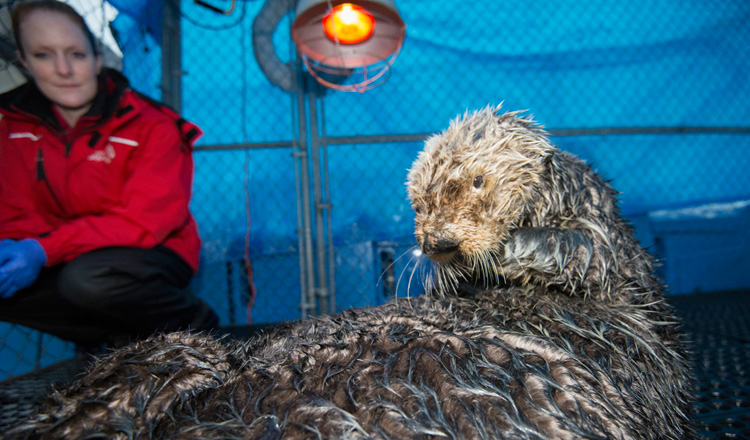A sea otter who was found in critical condition on the beach in Sooke Harbour has succumbed to his injuries despite months of intensive care at the Vancouver Aquarium Marine Mammal Rescue Centre.

“Whiffen” the otter, who is named after the spit of land he was found on, made headlines in February when he was found severely emaciated with injuries to his hind flippers.
“We found him non-responsive on the beach and exhibiting signs of hypoglycemia,” said Lindsaye Akhurst, manager of the aquarium’s rescue centre. “He required immediate medical intervention before we could transport him back to the rescue centre. We weren’t optimistic that he would survive the trip.”
The Vancouver Aquarium said Whiffen’s condition didn’t improve despite treatment and he passed away during an MRI Saturday.
“The otter was undergoing an MRI under anesthetic to try and determine the cause of his ongoing medical issues when he began to have trouble breathing and soon succumbed,” the Vancouver Aquarium said in a release.
Vancouver Aquarium head veterinarian Dr. Martin Haulena said the scan was intended to discover why he was not getting better and whether euthanizing him was the most humane option.
A necropsy on the otter showed significant heart lesions, which contributed to Whiffen’s death, Haulena said.
Whiffen’s progressive muscle loss, head tremors, weakness and other symptoms were also signs of toxoplasmosis, a disease caused by a parasite, commonly seen in cats and transferred through feline feces.
Referred to as the “cat parasite disease,” toxoplasmosis has killed off sea otters in California and has also been seen in arctic beluga whales.
The parasite can enter oceans through surface runoff and cat feces being flushed down the toilet, according to Haulena.
Vancouver Aquarium spokesperson Deana Lancaster said researchers believe climate change may play a role in the spread of the disease to arctic climates. “They used to think ice was a barrier, but with the ice melting the parasite can spread.”
The disease also poses a threat to humans if beluga whale meat is eaten or cat feces areaccidently ingested, Lancaster said.
Haulena said Whiffen’s case may provide important clues about the spread of the disease in B.C., but he will be missed by the staff who worked tirelessly to try and save him.
“It’s too bad, he was the cutest otter we ever had,” Lancaster said.




Comments